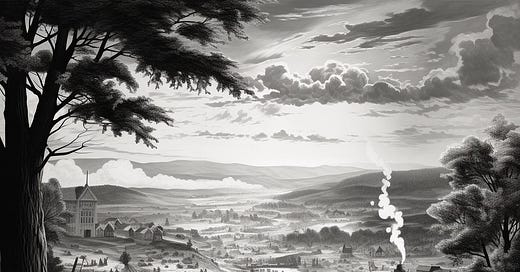In my full-length collections of poetry there are several war-related poems. These were written when the invasion of Iraq was weighing heavily on my conscience, as well as the revelations concerning black sites, actually debating the efficacy of torture, Guantanamo Bay, etc. I thought it best to approach the topic of war from a distance—I did not serve in the armed forces, and I felt there were interesting stories to be told from the home front, from afar, from people who (like me) were essentially spectators. “Spectators” is not a word I love in this context, but it fits in that war, among many other things, is a form of spectacle, for example, newscasts showing beautiful night skies with rockets streaking across them.
This poem, “Acoustic Shadows,” deals specifically with war as spectacle, but was written because of my fascination with the term and concept of acoustic shadows, where you could essentially, in a noisy environment, sit in pockets of silence. The poem is set during the Civil War, and I think we all have consistent images that come to mind when we hear that phrase: “The Civil War.”
Yet, I’ve read works that counter my assumptions in startling ways. For example, people used to go and watch battles and bring along a picnic. Just sit on a hilltop and watch people fight for their lives. This idea still rattles me, but also proves useful in that, as someone who has never fought in a war, the actual experience must be so much more chaotic, surreal, and unpredictable that defy the easy demarcations of “sides” and uniforms, as quiet physical spaces suddenly transform into something else, all while maintaining many of the physical items and characteristics that it presented in its moments of peace. And of course, when you are far away, there is the issue of what we choose and choose not to hear or understand.
Anyway, I’ve said enough.
Acoustic Shadows
by Chuck Rybak
When Grant squeezed Vicksburg
the seige outlasted trees, the Mississippi men
burrowed into bluffs, even the river itself.
Spectators huddled on hilltops,
Sunday dressed, sharing umbrellas
and stale tobacco, a set of glasses
to glimpse the Yankee General
who'd tied a private to a cypress trunk
for punching a horse. A family,
picnicking on a small plateau,
gazed at one another with wonder,
found they were deaf to the war while they watched
it rage below. The slightest breeze drowned
the battle, the cracking timber,
the latest charge. These reprieves came to be called
acoustic shadows, where whispers remained
possible. Those outside the pocket
surrendered the calm in their faces,
who heard every yell, the chocked cries
for Jesus, a twenty-gun barrage
to avenge a distant battle's Union dead.
In the shadow, threat is a pantomime,
as elaborate and cool as a sunset.
The family dined in peace while terror's pitch
echoed well beyond their ears—
the dangers, real and marching in, wondered
how this group could pass the wedges of a pie,
laughing in a place they could not leave.




Echoes of war provide mirror reflection of society’s values.